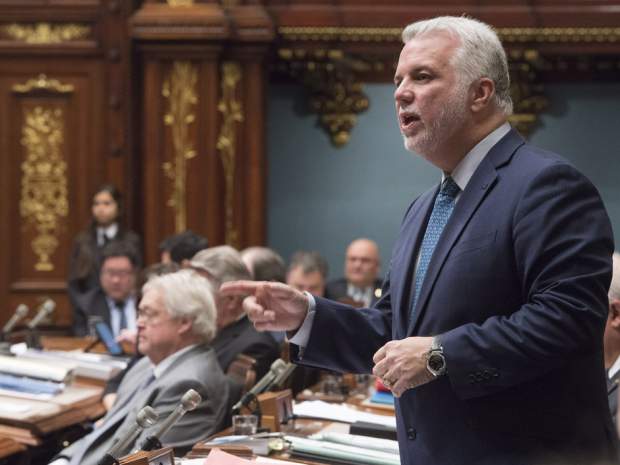Woe is Energy East. First, Quebec Environment Minister David Heurtel announced that the provincial government will seek a court injunction to ensure the pipeline project is subject to the province’s environmental regulations. “This is not directed at any province or region,” he said. “This is about one company that wants to do a project in Quebec which, in our opinion, is not respecting Quebec law.”
Yeah, right — tell that to Saskatchewan Premier Brad Wall, who fumed, “Enough is enough. Saskatchewan and Western Canada also has to protect its own interest and send some strong messages if that’s what the province of Quebec is doing.” In turn, Wall is threatening not to sign on to any national carbon pricing plan put forward by Prime Minister Justin Trudeau, the details of which are still not known, but which Wall claims would cost his province $1 billion a year.
One billion dollars, not coincidentally, is the amount of money ailing Quebec aerospace behemoth Bombardier is requesting from the federal government. Quebec’s injunction plan thus adds fuel to an already white-hot national unity fire — and which threatens to get hotter next week, when Trudeau heads off to dinner at the White House with U.S. President Barack Obama, where the two are set to sign off on a North American climate change strategy. While the details aren’t known, tougher vehicle emission standards and funding for green tech are rumoured to be part of the deal.
With that sort of backdrop, don’t expect Trudeau to suddenly champion the merits of increased oil development in Alberta. In fact, one could suspect he is setting the stage for rejecting the pipeline — on the pretext that it would jeopardize Canada’s commitments to curbing carbon emissions targets at home and abroad. In response to the injunction threat, Trudeau already stated that he understood a province’s desire to seek “social licence” for pipelines. “Even though governments grant permits, ultimately only communities grant permission … And drawing in from voices and a range of perspectives is going to lead us to better kinds of solutions and better outcomes for everyone across the country.”
Supporters of Quebec’s hard-line position routinely point out the five conditions put forward in 2012 by British Columbia Premier Christy Clark for Enbridge’s Northern Gateway pipeline to the Pacific coat. They included a “fair share” of revenues, indigenous participation and environmental protection standards. “British Columbians are fair and reasonable,” Clark said. “We know we need resource and economic development, but we also expect that risks are managed, environmental protection is uncompromised and that generations will benefit from the decisions we make today.”
But Clark didn’t threaten to go to court. She let the approvals process play itself out at the federal level first. That’s because filing an injunction before hearings take place is, to put it mildly, provocative and premature. In B.C.’s case, after the National Energy Board approved the pipeline, First Nations groups did file suit. In January, in the case of Coastal First Nations vs. British Columbia (Environment), the B.C. Supreme Court ruled against the NEB’s sole authority to review Northern Gateway, and granted the provincial government a role.


























Laissez un commentaire Votre adresse courriel ne sera pas publiée.
Veuillez vous connecter afin de laisser un commentaire.
Aucun commentaire trouvé